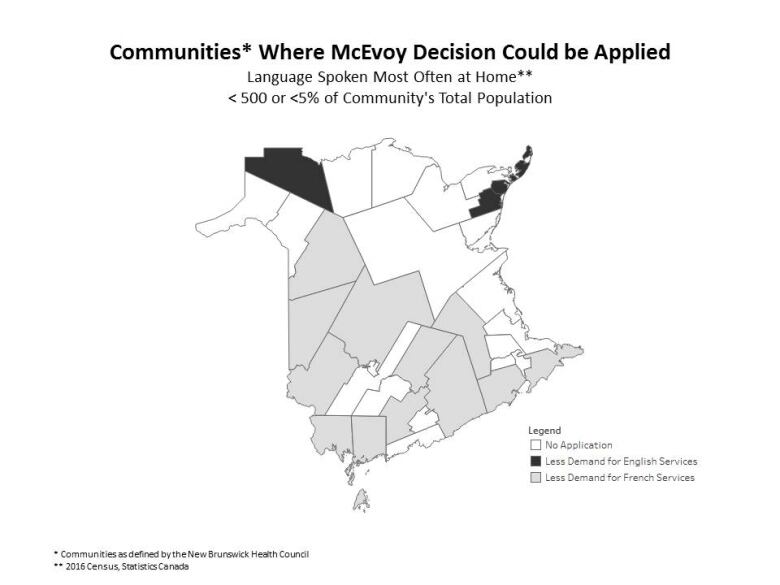Language commissioner wins right to intervene in paramedic hiring case
Judicial review coming up of arbitrator's recommendation not to require bilingual hires in some areas

New Brunswick's official languages commissioner has been given a legal green light to intervene in a contentious court case involving Ambulance New Brunswick's bilingual hiring practices.
A judge has ruled that Michel Carrier's lawyers will be allowed to make arguments and present evidence during a judicial review scheduled for Jan. 24.
It's the first time a New Brunswick language commissioner has been granted intervener status in a case before the courts.
"I am of the view that the Court could benefit from the arguments to be provided by the commissioner in the resolution of the issues between the parties," Justice Denise LeBlanc of the Court of Queen's Bench wrote in her Jan. 3 decision.
Carrier's lawyer, Michel Doucet, argued during a hearing last month that the commissioner had valuable insights to offer the court on how the Official Languages Act is interpreted.
Carrier said in a statement last month that recommended changes to the bilingual hiring requirements for paramedics "compromise the respect of New Brunswickers' language rights" and should not be implemented.
The McEvoyruling
The judicial review will examine a ruling last year by labour arbitrator John McEvoy. He found Ambulance New Brunswick was not complying with seniority clauses in its contract with the Canadian Union of Public Employees Local 4848.
McEvoy said Ambulance New Brunswick's use of temporary unilingual hires when it couldn't find bilingual paramedics, and the regular reposting of those vacancies, was interfering with seniority rights.
He suggested a regional-based hiring system that would not require bilingual paramedics in areas of the province where there is less demand for second-language service.

The previous Liberal government asked for a judicial review of the decision because its recommendations appear to violate the legal requirement for equal service in both languages in every part of the province.
The Higgs government announced in December that it was directing Ambulance New Brunswick to implement the McEvoy decision, even before the judicial review is heard.
Higgs would not say in an interview last month whether the province's lawyers would argue during the review that McEvoy's ruling complied with or violated the language law.
He said they'd be seeking "to get an interpretation" of how the law is applied.
The province's lawyers didn't take a position on whether Carrier should be able to intervene. CUPE 4848 opposed it, arguing the case is "a private matter" between the union and the province.

Carrier's lawyer Michel Doucet responded that McEvoy's labour ruling "went beyond the scope of the private matter" and waded into an interpretation of the Official Languages Act that would affect the rights of New Brunswickers.
Carrier's intervention in the paramedic case is the second time in recent months that an arm's-length legislative watchdog has gone to court.
Last fall, then-integrity commissioner Alexandre Deschnes filed the first-ever appeal by a commissioner in a right-to-information case.
The never-before-used power allowed him to challenge the province's refusal to provide a New Brunswick woman with an investigator's report on her use of an income-assistance program.
After Deschnes filed the case, the province relented and gave the woman the report.












_(720p).jpg)


 OFFICIAL HD MUSIC VIDEO.jpg)
.jpg)



























































































